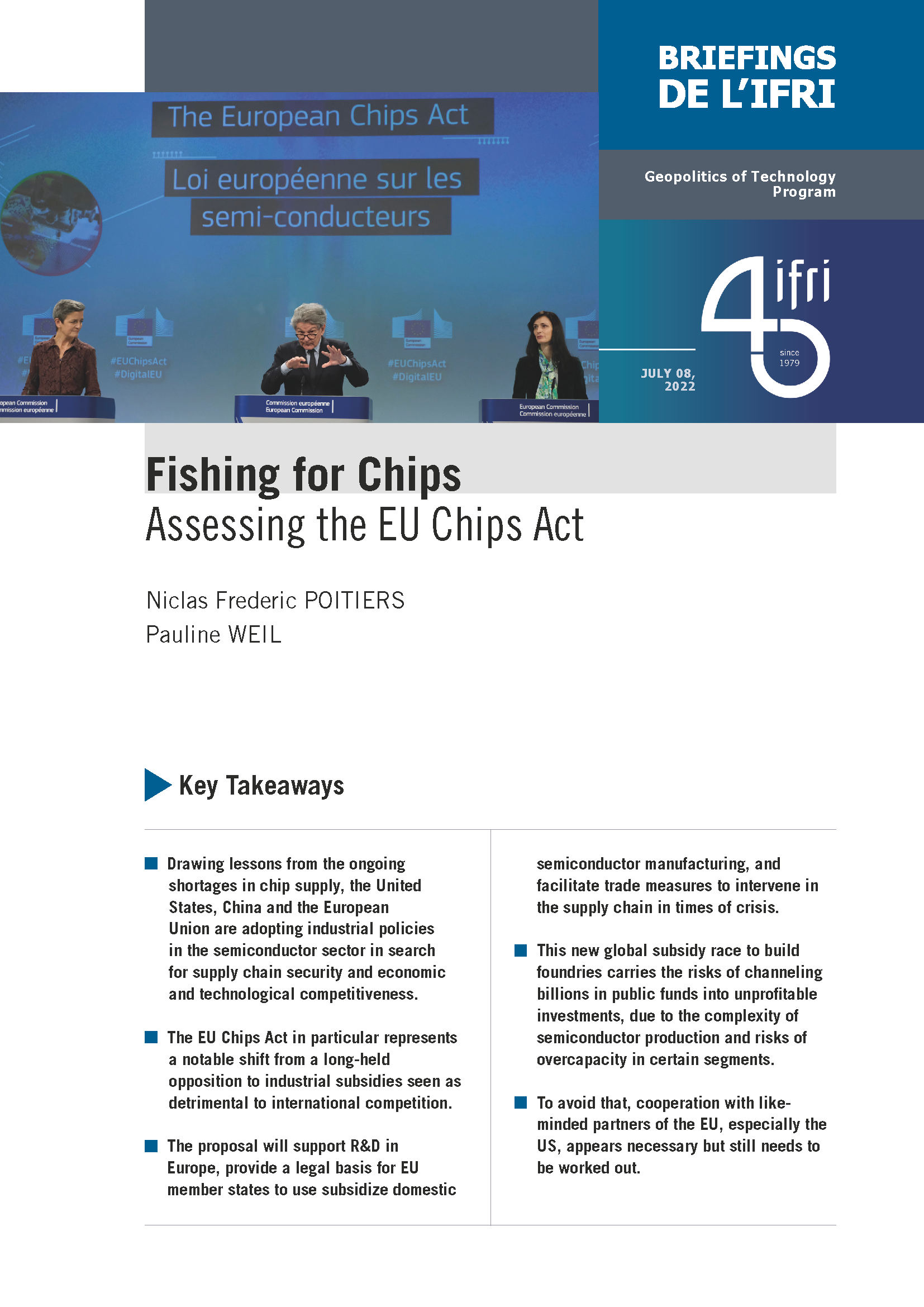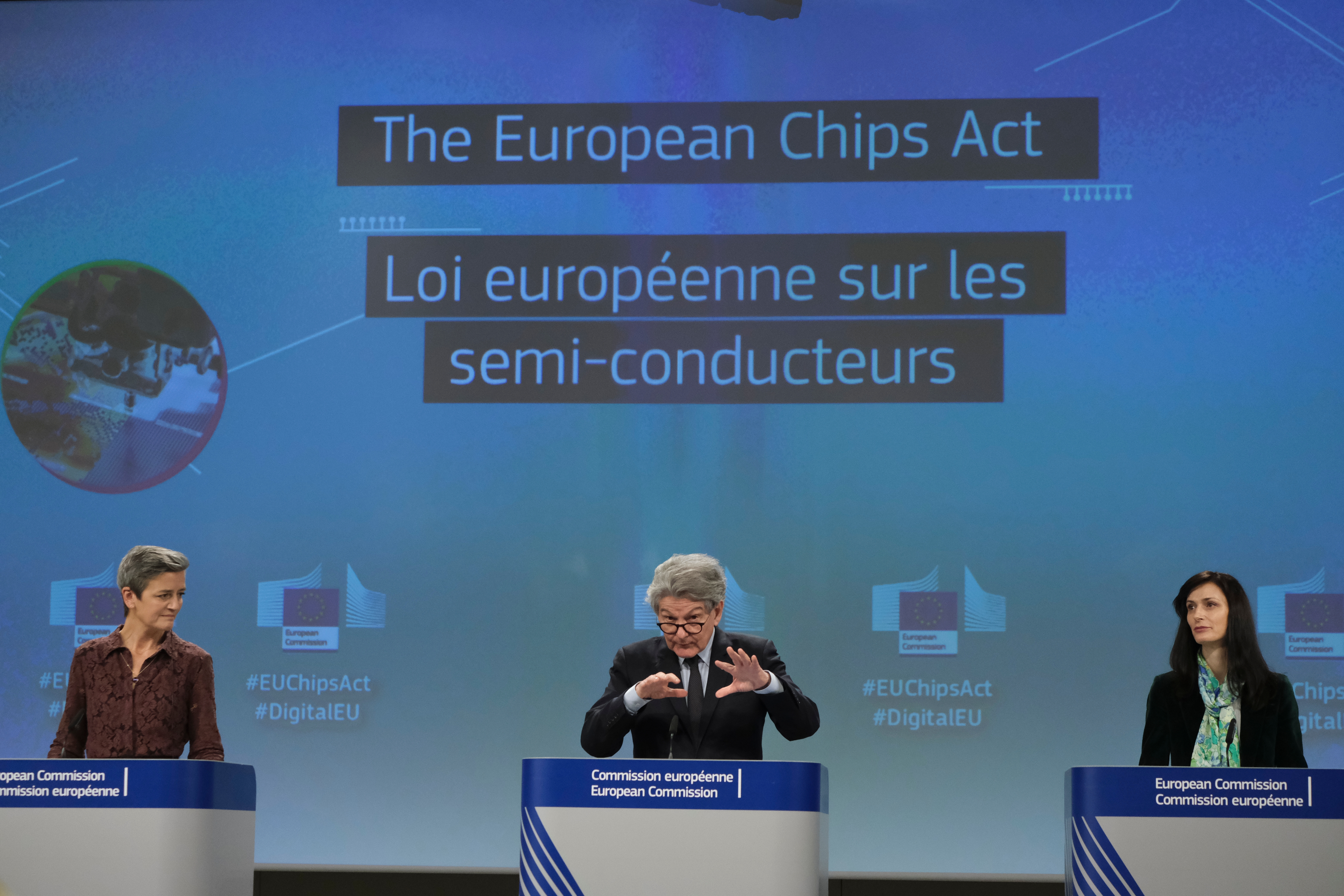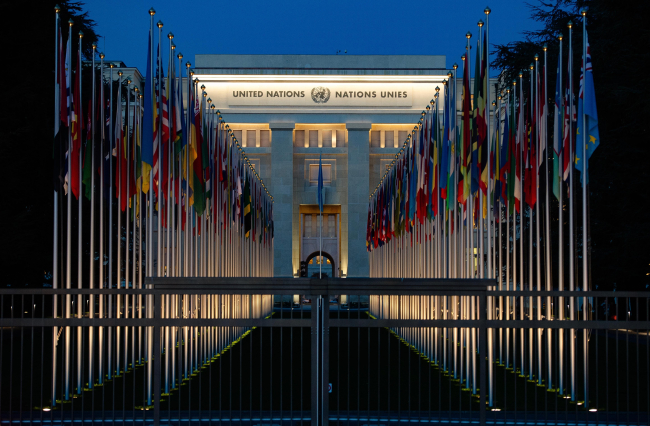Fishing for Chips: Assessing the EU Chips Act

China, the United States, and the European Union (EU) are currently developing strategies for semiconductors aimed at financing R&D and the installation of new factories on their territories, in particular through subsidies. The EU Chips Act, announced in February 2022, represents a real break in Europe's industrial policy.

Key Takeaways:
- Drawing lessons from the ongoing shortages in chip supply, the United States, China, and the European Union are adopting industrial policies in the semiconductor sector in search for supply chain security and economic and technological competitiveness.
- The EU Chips Act in particular represents a notable shift from a long-held opposition to industrial subsidies seen as detrimental to international competition.
- The proposal will support R&D in Europe, provide a legal basis for EU member states to use subsidize domestic semiconductor manufacturing, and facilitate trade measures to intervene in the supply chain in times of crisis.
- This new global subsidy race to build foundries carries the risks of channeling billions in public funds into unprofitable investments, due to the complexity of semiconductor production and risks of overcapacity in certain segments.
- To avoid that, cooperation with like-minded partners of the EU, especially the US, appears necessary but still needs to be worked out.
This briefing is available in two languages:
- in English : Fishing for Chips : Assessing the EU Chips Act
- In French : Marché aux puces : analyse de la loi européenne sur les semi-conducteurs

Available in:
Regions and themes
ISBN / ISSN
Share
Download the full analysis
This page contains only a summary of our work. If you would like to have access to all the information from our research on the subject, you can download the full version in PDF format.
Fishing for Chips: Assessing the EU Chips Act
Related centers and programs
Discover our other research centers and programsFind out more
Discover all our analysesRegulatory Dynamics and Tensions in the Space Sector: Towards and Americanization of Space Law?
The development of space law has gradually evolved from a top-down normative dynamic dominated by the founding impetus of the UN to a bottom-up normativity driven by national and industrial practices. This evolution is now accompanied by growing normative competition, raising the risk of an Americanization of space law and prompting the question of a European response.
The Sustainability of Space Operations: An Opportunity for European Leadership?
As space becomes a key arena for power projection strategies, while facing growth and diversification of orbital activities, the concept of “space sustainability” is emerging as a new framework of analysis for space governance.
The “Huawei Saga” in Europe Revisited: German Lessons for the Rollout of 6G
While the European Union attempted to coordinate a collective response through its 5G Toolbox in Europe’s 5G infrastructure, member states diverged significantly in balancing political, economic, and technological considerations. Germany, despite its economic ties to China and status as Europe’s largest telecom market, only reached a tentative agreement in July 2024—one that appears largely symbolic.
European Startups and Generative AI: Overcoming Big Tech Dominance
Europe is at a crossroads. Faced with the domination of American Big Tech across the entire generative Artificial Intelligence (AI) value chain, from foundation models to cloud infrastructure, distribution channels, and open source, it risks long-term technological and economic decline. Yet generative AI also represents a major opportunity for economic transformation, with a potential value estimated at 1.5 times France’s gross domestic product (GDP). To turn it into a driver of renewal, Europe must move beyond the illusion of total technological independence and instead build an ecosystem that leverages Big Tech resources while strengthening its own innovation capabilities.










